Table of Contents
- What is the Keto Diet?
- Benefits of the Keto Diet
- Risks of the Keto Diet
- Sample Keto Meal Plan
- Tips for Success on the Keto Diet
- Myths Busted: Common Misconceptions about Keto
- Alternatives to the Keto Diet
What is the Keto Diet?
The keto diet is a low-carb, high-fat diet that has gained popularity in recent years. It involves drastically reducing your carbohydrate intake and replacing it with healthy fats to induce a state of ketosis, where your body burns fat for fuel instead of glucose.
Benefits of the Keto Diet
Some potential benefits of the keto diet include weight loss, improved blood sugar control, increased energy levels, and enhanced mental clarity. Many people also report reduced inflammation and improved overall health on the keto diet.
The Keto Diet, short for ketogenic diet, is a low-carb, high-fat diet that offers numerous health benefits. Some of the benefits of the Keto Diet include:
- Weight loss: By reducing carbohydrate intake and increasing fat consumption, the Keto Diet can help people lose weight by putting the body into a state of ketosis where it burns fat for energy.
- Improved heart health: The Keto Diet has been shown to reduce risk factors for heart disease such as high blood pressure, cholesterol levels, and blood sugar levels.
- Increased energy levels: By using fat for energy instead of carbs, people on the Keto Diet often experience a steady supply of energy throughout the day.
- Mental clarity: Many people report improved focus, concentration, and cognitive function while on the Keto Diet.
- Controlled blood sugar: The Keto Diet can help stabilize blood sugar levels and improve insulin sensitivity, making it a beneficial diet for people with diabetes or prediabetes.
Overall, the Keto Diet can be a healthy and effective way to improve various aspects of health and well-being.
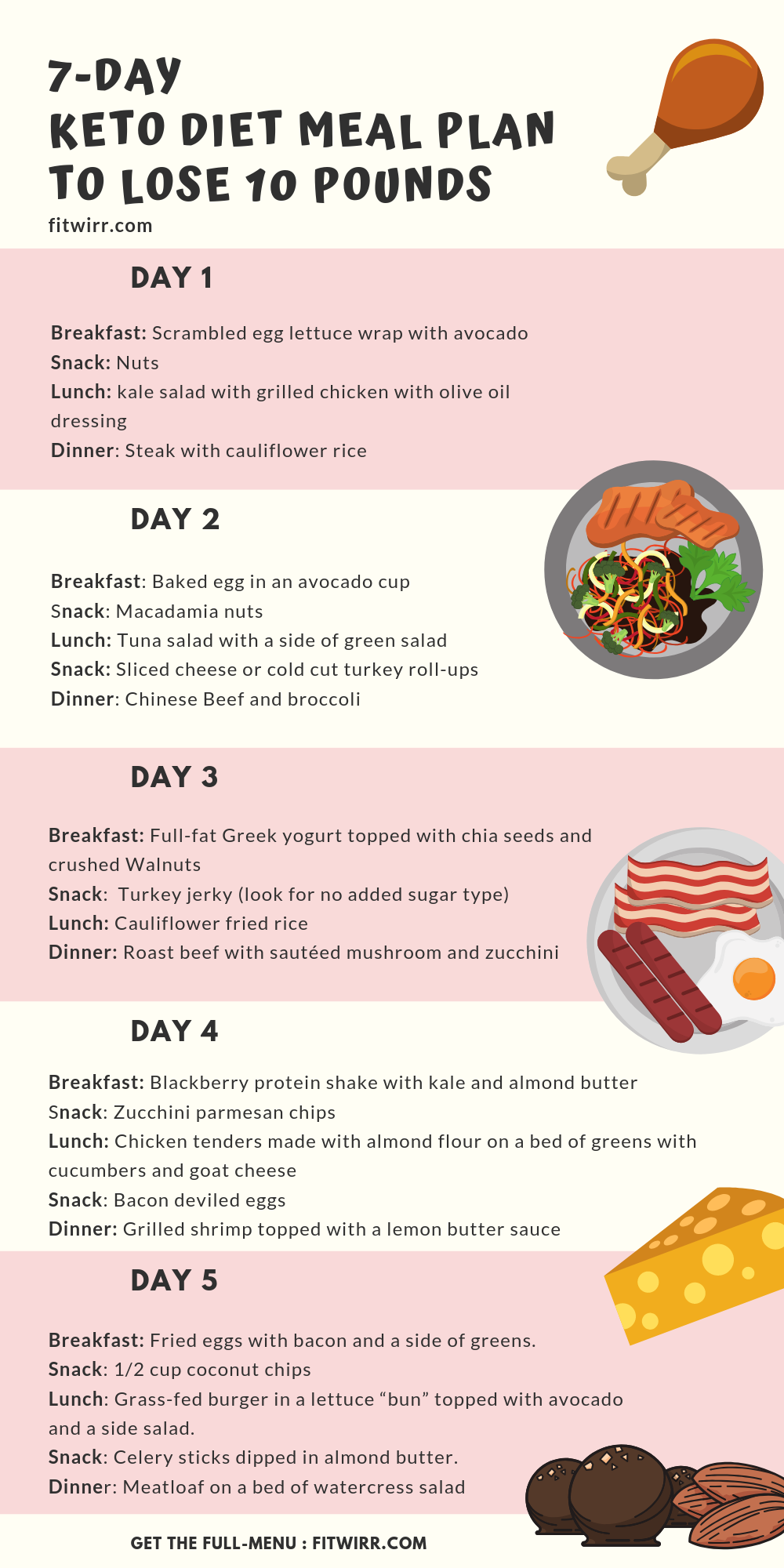
Risks of the Keto Diet
While the keto diet has its benefits, it also comes with some risks. These can include nutrient deficiencies, potential side effects like the "keto flu," and difficulty sustaining the diet long-term.
While the Keto Diet has gained popularity for its weight loss benefits, it also comes with some potential risks to consider:
- Increased risk of nutrient deficiencies: By cutting out certain food groups like fruits, grains, and some vegetables, it can be harder to get essential vitamins and minerals.
- Increased cholesterol levels: The high intake of saturated fats in the Keto Diet can lead to elevated cholesterol levels, which may increase the risk of heart disease.
- Keto flu: Some people may experience symptoms like fatigue, headaches, and nausea when transitioning to the Keto Diet, known as the "Keto flu."
- Potential kidney issues: The high protein intake in the Keto Diet may put strain on the kidneys over time, potentially leading to kidney issues.
It's important to consult with a healthcare professional before starting any new diet plan, including the Keto Diet, to ensure it is safe and suitable for your individual health needs.
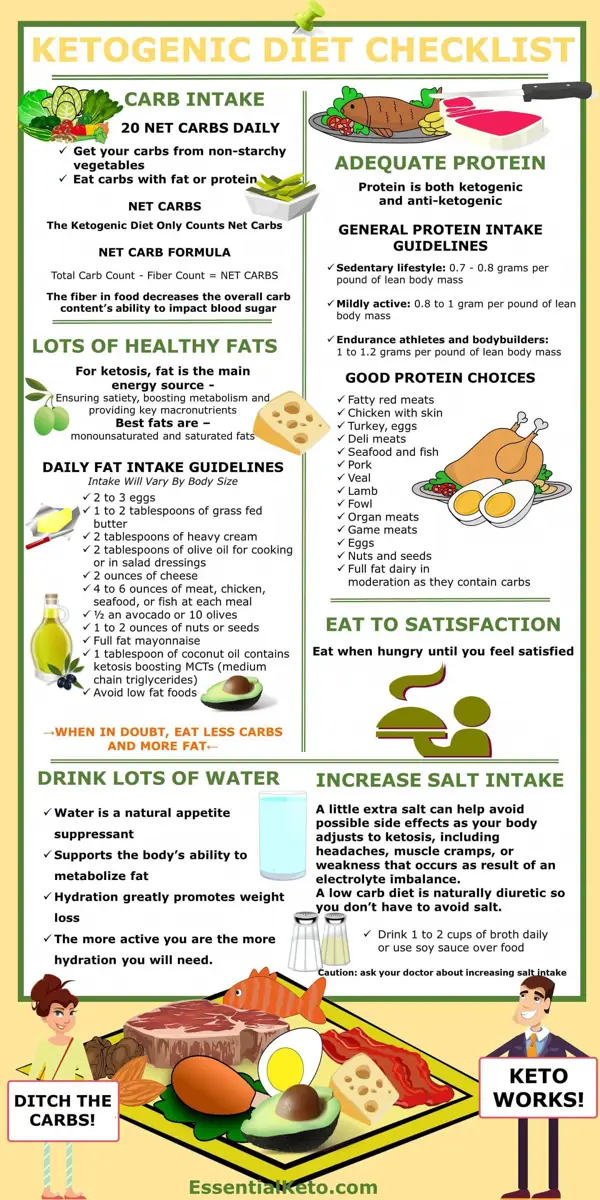
Sample Keto Meal Plan
Here is a sample one-day keto meal plan:
A ketogenic diet, or keto diet, is a high-fat, low-carb diet that has been shown to help with weight loss and improve overall health. It works by forcing the body to burn fats for fuel instead of carbohydrates.
Day 1
- Breakfast: Scrambled eggs with avocado
- Lunch: Grilled chicken with broccoli and cauliflower rice
- Dinner: Salmon with asparagus and a side salad
Day 2
- Breakfast: Bulletproof coffee (coffee blended with grass-fed butter and MCT oil)
- Lunch: Zucchini noodles with pesto and cherry tomatoes
- Dinner: Steak with green beans and a side of sautéed mushrooms
Day 3
- Breakfast: Chia pudding made with coconut milk
- Lunch: Turkey lettuce wraps with avocado and tomato
- Dinner: Baked cod with roasted Brussels sprouts
Remember to consult with a healthcare provider before starting any new diet, especially if you have any underlying health conditions. The keto diet may not be suitable for everyone.
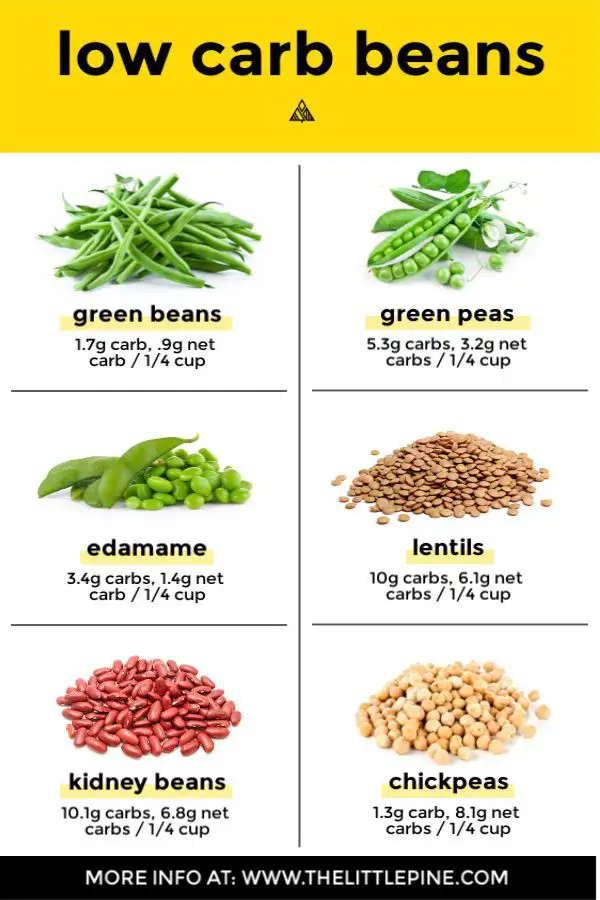
- Breakfast: Scrambled eggs with avocado and spinach
- Lunch: Grilled chicken salad with olive oil dressing
- Dinner: Baked salmon with broccoli and cauliflower
- Snacks: Almonds, cheese slices, or celery with peanut butter
Tips for Success on the Keto Diet
To thrive on the keto diet, it's essential to stay hydrated, eat plenty of healthy fats and fiber, and monitor your electrolyte levels. Planning your meals and snacks in advance can also help you stay on track.
The ketogenic diet, commonly known as the keto diet, has gained popularity for its potential to promote weight loss and improve overall health. However, following a keto diet can be challenging for some people. Here are some tips to help you succeed on the keto diet:
- Plan your meals ahead of time to ensure you are getting the right balance of fats, proteins, and carbohydrates.
- Include a variety of healthy fats such as avocados, nuts, and olive oil in your diet.
- Limit your intake of processed and sugary foods, as they can derail your progress on the keto diet.
- Stay hydrated and drink plenty of water throughout the day.
- Listen to your body and adjust your meals and portion sizes as needed.
- Be patient and give your body time to adjust to the keto diet. It may take some time to see results, but consistency is key.
Remember, the keto diet may not be suitable for everyone and it is important to consult with a healthcare professional before making any drastic changes to your diet.
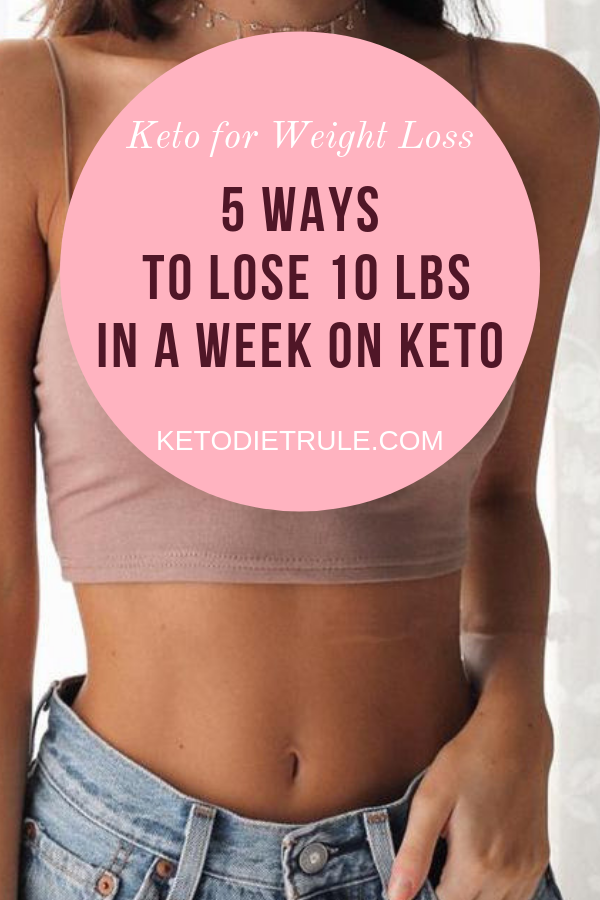
Myths Busted: Common Misconceptions about Keto
Contrary to popular belief, the keto diet is not all about bacon and butter. It's possible to follow a healthy keto diet that includes a variety of nutrient-rich foods like vegetables, nuts, and seeds.
There are many misconceptions surrounding the ketogenic diet, also known as keto. Here are some common myths busted:
- Myth: Keto is a fad diet with no long-term health benefits.
- Reality: Studies have shown that the ketogenic diet can have numerous health benefits, including weight loss, improved blood sugar control, and increased energy levels.
- Myth: Keto is a high-fat diet that will increase your risk of heart disease.
- Reality: While the ketogenic diet is high in fats, it mainly focuses on healthy fats like avocados, nuts, and olive oil. These fats can actually improve heart health when consumed in moderation.
- Myth: Keto is restrictive and hard to maintain long-term.
- Reality: While the ketogenic diet does require some initial adjustment, many people find it easier to stick to compared to other diets due to its satiating effects and flexibility in food choices.
Ultimately, whether keto is the healthiest diet for you depends on your individual health goals and preferences. It's always best to consult with a healthcare professional before making any significant dietary changes.
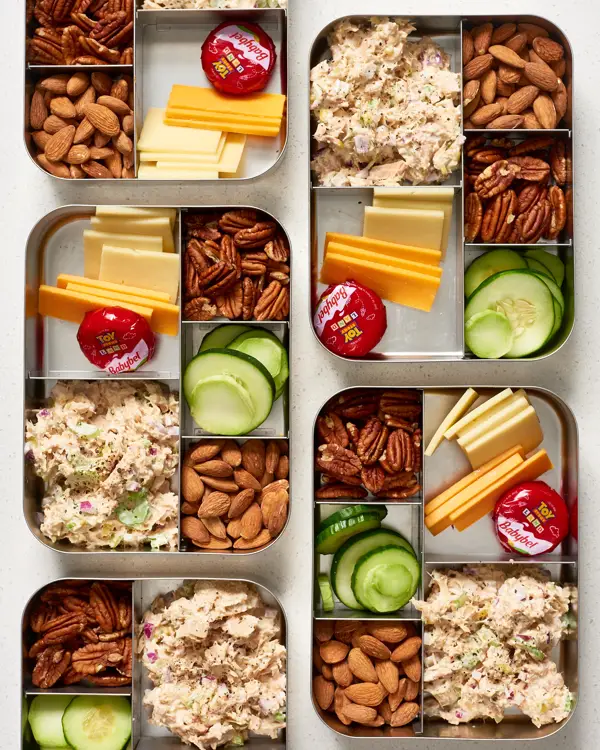
Alternatives to the Keto Diet
If the keto diet doesn't align with your preferences or health goals, there are plenty of alternative diets to consider, such as the Mediterranean diet, plant-based diet, or intermittent fasting.
While the Keto diet has gained popularity in recent years, it may not be the healthiest option for everyone. There are several alternatives to the Keto diet that offer different benefits and may be more sustainable in the long term.
1. Mediterranean Diet
The Mediterranean diet is known for its focus on whole foods, lean proteins, healthy fats, and plenty of fruits and vegetables. It has been shown to have numerous health benefits, including reducing the risk of heart disease and improving cognitive function.
2. Plant-Based Diet
A plant-based diet is rich in fruits, vegetables, nuts, seeds, and whole grains, and excludes or minimizes animal products. This diet has been linked to lower rates of chronic diseases, such as diabetes and cancer, and may help with weight loss and management.
3. Paleo Diet
The Paleo diet focuses on eating foods that our ancestors would have consumed, such as lean meats, fish, fruits, and vegetables. This diet is high in protein and low in processed foods, which may help with weight loss and improve overall health.
Ultimately, the healthiest diet is one that is balanced, sustainable, and tailored to individual needs and preferences. It's important to consult with a healthcare provider or nutritionist before making any major changes to your diet.
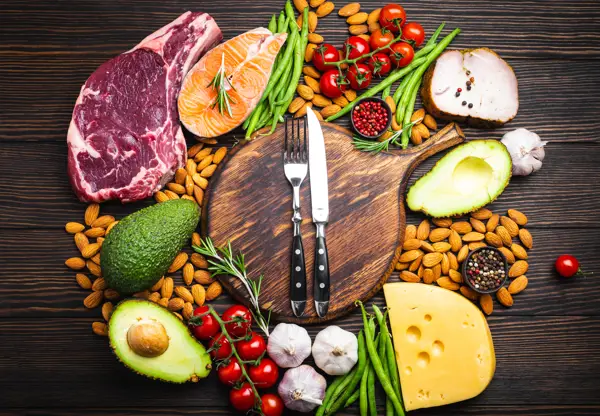
Key Takeaways
- The keto diet can offer several health benefits, but it's essential to weigh the risks and benefits before starting.
- Proper hydration, nutrient intake, and meal planning are crucial for success on the keto diet.
- Don't fall for common myths about the keto diet—research and consult with a healthcare professional for accurate information.
- If the keto diet isn't right for you, there are plenty of other dietary approaches to explore.
Frequently Asked Questions
Is the keto diet safe for everyone?
While the keto diet can be safe for most people, individuals with certain medical conditions or dietary restrictions should consult with a healthcare provider before starting the diet.
Can you exercise on the keto diet?
Yes, you can still exercise while on the keto diet. It may take some time for your body to adjust to using fat for fuel, but many athletes and fitness enthusiasts have successfully incorporated the keto diet into their routines.
Is it necessary to track macros on the keto diet?
Tracking macros (macronutrients like carbs, fats, and proteins) can help you stay within the recommended ranges for the keto diet. However, it's not mandatory, and some people find success without strict tracking.
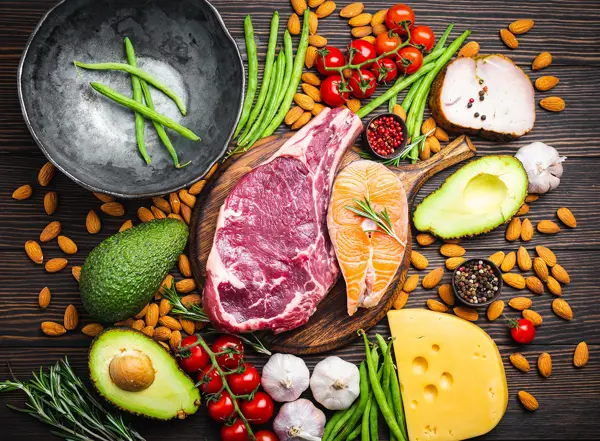


Recent Comments